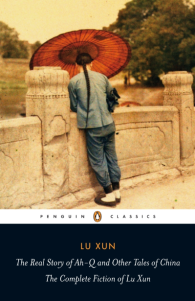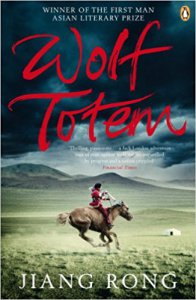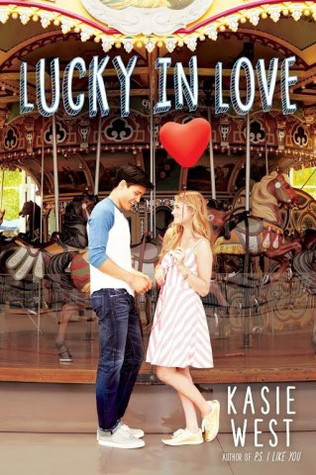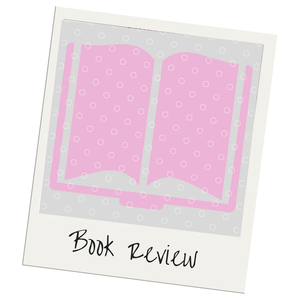Written by Paul Gardner.
Chinese literature deserves to be much better known in the West. For this blog I have selected some of my favourite Chinese novels (translated into English) from the last 100 years (and a bit).
As a student of Chinese politics, I have been particularly interested to read novels that might reveal something about how Chinese writers view the events of this period. Therefore, I have focused on some of the insights these books provide into China’s politics and society over the last century.
However, for the most part, historical events form little more than the backdrop to these books. Essentially, they are great stories, which I think will appeal to a wide range of people. I have included links to more general reviews of most of the books, for those who want to find out more about them.
 One of the first books I read was Lu Xun’s The Real Story of Ah Q and other Tales of China. Lu Xun was the leading left-wing writer of the 1930s, admired by Mao, who believed the purpose of literature was to transform the minds of, and enlighten, his fellow Chinese.
One of the first books I read was Lu Xun’s The Real Story of Ah Q and other Tales of China. Lu Xun was the leading left-wing writer of the 1930s, admired by Mao, who believed the purpose of literature was to transform the minds of, and enlighten, his fellow Chinese.
He was training to be a doctor in Japan at the time of the Russo-Japanese War (1904-5) which was partly fought in China. One day he saw a photo in which a Japanese soldier was about to behead a Chinese man, surrounded by other Chinese people who had come to enjoy the spectacle. He later observed that:
‘Every face was utterly, stupidly blank . . . I no longer believed in the overwhelming importance of medical science… However rude a nation was in physical health, if its people were intellectually feeble, they would never become anything other than cannon fodder or gawping spectators . . . The first task was to change their spirit; and I decided that literature and the arts were the best means to this end’ (Guardian).
In the title story, Ah Q is capable of self-deception even when faced with extreme defeat or humiliation, representing Lu Xun’s view of the Chinese character at the time. He gets into quarrels with other villagers and invariably loses, often taking a beating, but somehow always manages to convince himself that he has come out on top.
When news arrives of the 1911 Xinhai Revolution (which brought the last imperial dynasty to an end), a ‘revolutionary army’ of local villagers rob the houses of the landlords and rich men. Ah Q also hoped to join them but sleeps in and misses out on the action. Nevertheless, he is arrested as a scapegoat for the looting. He is asked to sign a confession and is so obsessed with drawing a perfect circle as his mark, that he fails to realise that the confession will lead to his execution.
Lao She’s Rickshaw Boy is another classic of 20th Century Chinese literature. Xiangzi is an honest and hard-working rickshaw puller in 1920s Beijing, who makes continuing and unsuccessful efforts to improve his life. In the end he learns that honesty and hard work have little meaning in dog-eat-dog world of warlord era Beijing. As he observes, after a number of setbacks: ‘Pulling a rickshaw was a dead-end trade. No matter how hard you worked or tried to better yourself, you cannot marry, get sick, or make a false move’.
Lao She’s sense of anger and outrage about the condition that so many of his fellow citizens were living in comes through very strongly in this compelling and very human story.
Lao She committed suicide during the Cultural Revolution after Red Guards paraded him through the streets and beat him in public.
Qian Zhongshu’s Fortress Besieged, recommended by one of my Chinese language teachers, is a much lighter read than the two previous books. Set in the 1930s, it tracks the misfortunes of Fang Hongjian, who returns to Shanghai from Europe just as the city is occupied by the Japanese in 1937. The war forms an ever present backdrop to the story but this is a very funny and enjoyable tale, which at times reminds me of Kingsley Amis’ ‘Lucky Jim’.
Fang is ‘a feckless, cowardly student who returns from Europe with a mail-order doctorate in Chinese from an American university that exists only in the imagination of a crooked Irishman’. (LA Review of Books)
After proving unlucky in love in Shanghai, he takes a teaching job at a university in China’s interior. Having to take a roundabout route there to avoid the fighting, he and his companions encounter a series of, often humorous, difficulties.
At the university, Fang ‘finds that the other teachers are pompous frauds, backstabbers, and brownnosers’. These include ‘a philosopher who claims a personal friendship with Bertrand Russell (“Bertie”) on the strength of a form reply to his fan mail.’ (LA Review of Books)
 Wang Anyi’s The Song of Everlasting Sorrow tells the story of Wang Qiyao from her teenage years in the 1940s to her untimely death forty years later. The book conveys a real sense of place with the description of Shanghai and in particular it’s longtangs (the city’s equivalent of Beijing’s narrow hutongs).
Wang Anyi’s The Song of Everlasting Sorrow tells the story of Wang Qiyao from her teenage years in the 1940s to her untimely death forty years later. The book conveys a real sense of place with the description of Shanghai and in particular it’s longtangs (the city’s equivalent of Beijing’s narrow hutongs).
As a teenager, when the Nationalists were in control, Wang is obsessed with the glamour of Hollywood. Her 15 minutes of fame comes after visiting a film set, when her photo is used in Shanghai Life as a ‘Proper Young Lady of Shanghai’ and she then comes third in a beauty contest.
With the victory of the Communists in 1949, the girls’ ‘delicately embroidered cheongsams’ are increasingly replaced by the blue ‘liberation suits’ (NY Times). She spends the rest of her life ‘trying to recapture, or re-live, those fleeting happy times of her youth’ (Historical Novel Society).
This is not a book with a political message, indeed politics only occasionally impacts on Wang’s life. However, we see Wang and her friends secretly playing Mahjong in the fifties, despite the game being ‘forbidden by the People’s Government’. Towards the end of the decade, agricultural collectivisation during the Great Leap Forward leads to food shortages.
Then comes the Cultural Revolution in the 1960s, ‘a force that swept away everything in its path’. One of those swept away is one of Wang’s male admirers, who commits suicide after he is falsely accused of being a spy and locked in a toilet for a month.
As the reform and opening up era begins, following Mao’s death, clothing stores open along Shanghai’s boulevards and Wang’s daughter and her friends quickly adopt the latest fashions. Wang’s life moves towards ‘its violent, melodramatic and distressingly appropriate ending’, in the style of some of the Hollywood movies that she had loved in her youth.
The central character in Yu Hua’s To Live is Fugui, the son of a wealthy landowner, who gambles away the family fortune. Just as he starts to scrape a living he is press ganged into the Nationalist Army. However, his original misfortune turns out to be somewhat fortuitous. When the Communists take over and the new landlord is executed and his land redistributed among the peasants.
The impact of the Great Leap Forward was much greater in rural areas than in cities like Shanghai, which the Communist Party sought to protect as much as possible. The villagers come close to starvation when agricultural experiments are forced on them and their metal pots and tools are taken away in a futile attempt to develop a village steel industry.
In the Cultural Revolution, Fugui sees one of his old friends, who had since gained a senior Party position, struggled against and driven to his death by Red Guards.
Despite all this, and his own personal suffering, Fugui soldiers on, determined simply to live.
 In Jiang Rong’s Wolf Totem Chen Zhen is sent to work with the nomadic farmers on the grasslands of Inner Mongolia.
In Jiang Rong’s Wolf Totem Chen Zhen is sent to work with the nomadic farmers on the grasslands of Inner Mongolia.
In the early phase of the Cultural Revolution, Mao had encouraged young Red Guards to create chaos as part of his plan to complete the transition to a Communist society. Once things got out of hand, millions of young people from urban areas were sent down to the countryside to learn from the peasants (and to get them out of the way). Jiang, writing from personal experience, paints a vivid and beautiful picture of grassland life and particularly the wolves.
Chen comes to enjoy and appreciate the lives the nomads live, in tune with nature, and fascinated by the wolves, decides to raise a wolf cub. However, he sees this life disappearing as Communist officials force through more intensive farming styles, destroying the grasslands and the wolves in the process.
The book therefore has a strong environmental message. However, in China: The Pessoptimist Nation, Professor William Callahan argues it is a nationalist call for China to become more like the ‘heroically masculine wolf’ rather than the ‘passively feminine sheep’.
Part two of the blog will be added in a couple of weeks.
Here are a few books for those who want to find out more about some of the events referred to here: Restless Empire: China and the World since 1750 by Odd Arne Westad; China’s War with Japan by Rana Mitter; Mao’s Great Famine by Frank Dikotter.
A note on translators and publishers:
The Real Story of Ah-Q and Other Tales of China by Lu Xun, translated by Julia Lovell and published by Penguin
Rickshaw Boy by Lao She, translated by Howard Goldblatt and published by Harper Collins
Fortress Besieged by Qian Zhongshu, translated by Jonathan Spence and published by Penguin
The Song of Everlasting Sorrows by Wang Anyi, translated by Michael Berry and published by Columbia University Press
To Live by Yu Hua, translated by Michael Berry and published by Anchor Books
Wolf Totem by Jiang Rong, translated by Howard Goldblatt and published by Penguin
Share this:




